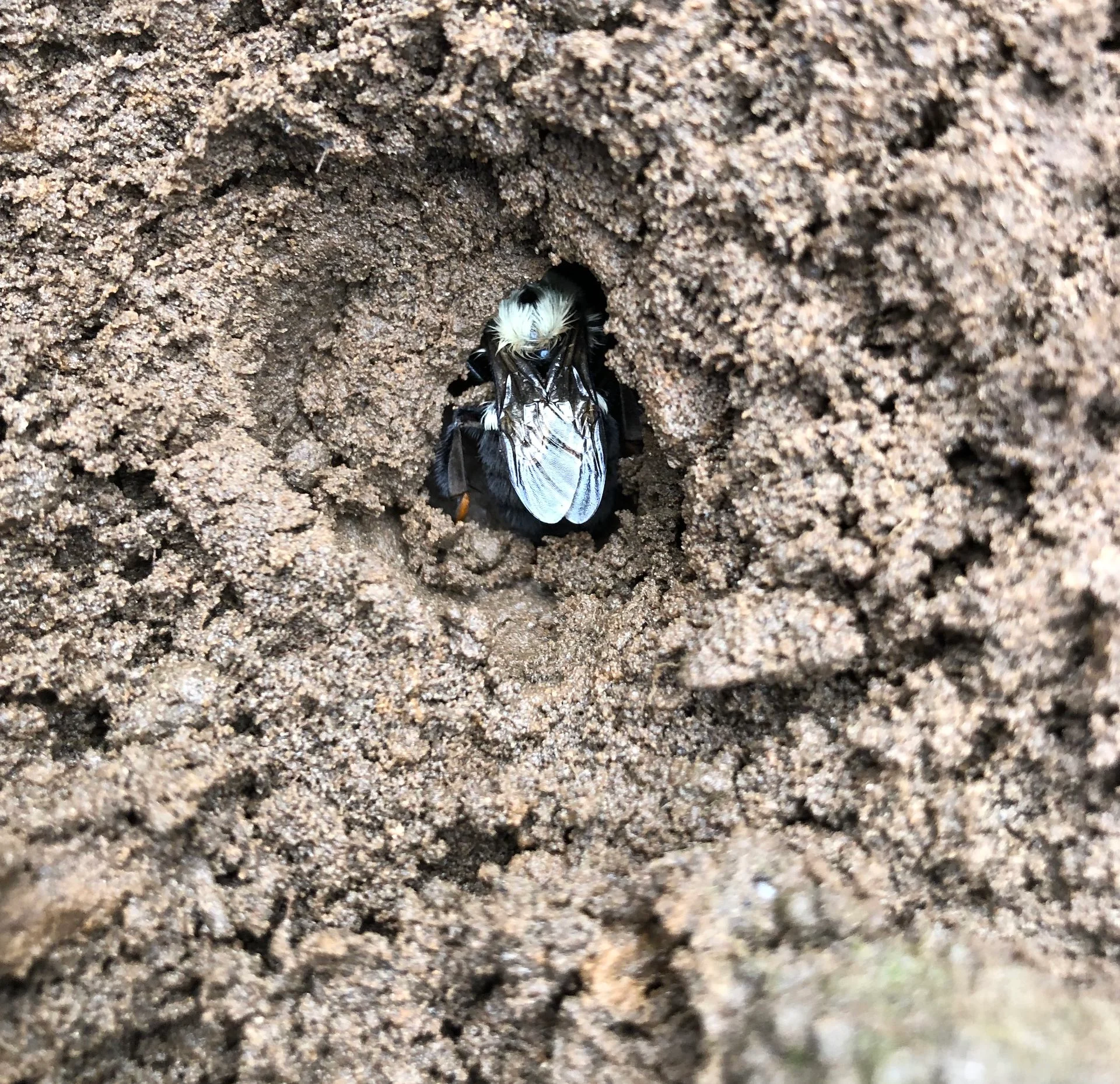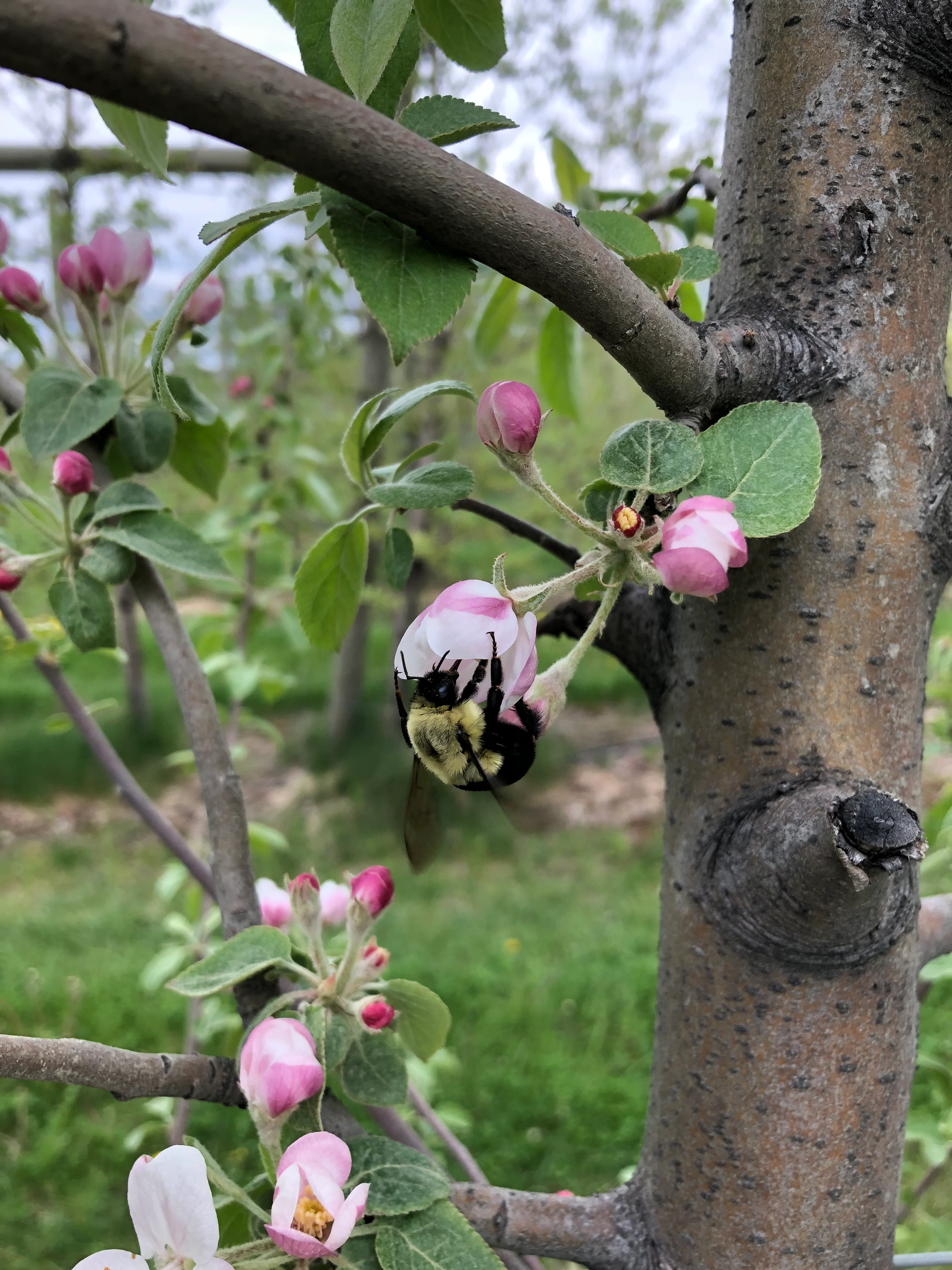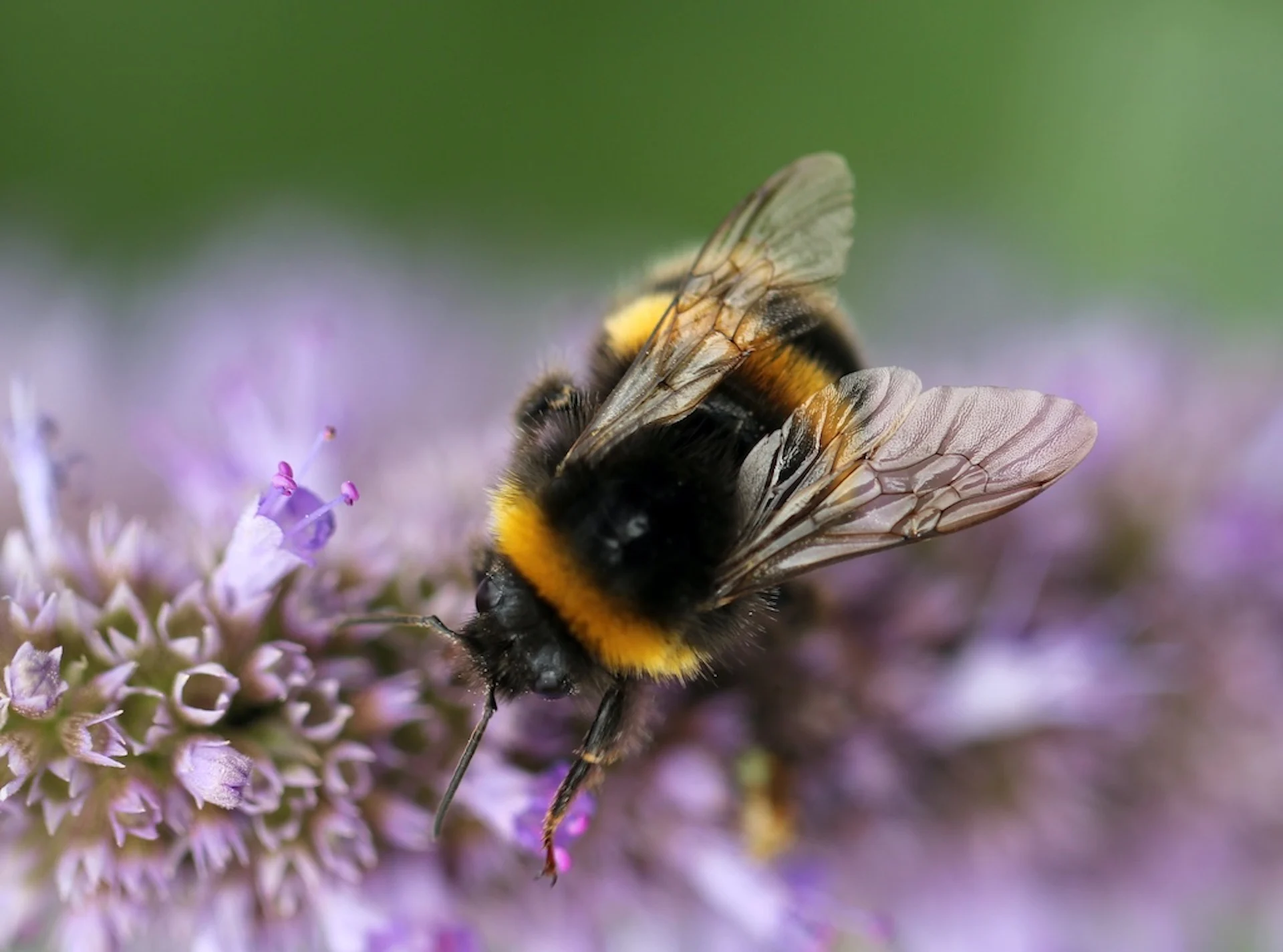
This resilient bee defies logic and can avoid watery death for a week
Researchers made a surprising discovery that showed the common eastern bumblebee queens' ability to survive while submerged for an extended period during hibernation.
Sometimes the best discoveries end up being the ones you never knew you were looking for in the first place.
That could be said for Sabrina Rondeau and Nigel Raine, researchers who discovered a previously unknown and unique fact about a species of bee while working on an unrelated study: Queens of the common eastern bumblebee can survive while submerged for up to a week.
DON'T MISS: Bumblebees may see bump in pollination effectiveness from caffeine
In s previous analysis, an experimental omission led the pair to finding water accumulating inside a container with diapausing, a period of suspended development, bumblebee queens.
Much to Rondeau's surprise, after draining the water, the queens were found to be alive –– an occurrence that she wasn't aware of previously.
"I've studied bumblebees for a while now. And, when I stumbled upon this discovery by accident, I was extremely surprised. I talked about this to a lot of people that also study bees, and no one really knew about this," said Rondeau, co-author of the study and postdoctoral fellow at the University of Ottawa, in a recent interview with The Weather Network.

(Nigel Raine/Submitted to The Weather Network)
"I searched the literature and also didn't find any mention of this possibility."
How they can endure being submerged
The study involved an experiment using 143 common eastern bumblebee (Bombus impatiens) queens in soil-filled tubes, then exposed to artificially induced diapause in a refrigerated unit for seven days.
Water was put into the tubes and queens were either maintained while submerged using a plunger-like apparatus or left to float naturally on the water’s surface for varying durations, either for eight or 24 hours, or seven days, while remaining in overwintering conditions, the study said.
"What happens then is that the queen will float at the surface of the water. And that kind of mimicked a situation where underground water would rise following a flooding event without completely filling the cavity inside [in] which those queens are hibernating," said Rondeau.
In the experiment, the bees were stored in a container with a temperature of 4 C, mimicking the climate below the surface when they are in their hibernaculum, she said, adding they could likely survive in values as low as 0 C.

(Victoria MacPhail/Submitted to The Weather Network)
Insects, not just bumblebees, have many adaptations that can prevent water from entering their respiratory system, Rondeau said. They have cuticles, so their skin is "quite waterproof, actually."
"That helps them when they are plunged under water to not let that water enter their respiratory system," said Rondeau.
They don't breathe through their noses or mouths as humans do, she said, noting they do so through spiracles, which are small holes along the sides of their abdomen that close and open.
"They have muscles around these small holes, so when they are submerged, these spiracles can remain close and that also prevents water from entering," said Rondeau.
Even though the common eastern bumblebee queens were found to possess the unusual underwater skill, it doesn't mean "you can take any insects, submerge them and they will survive," Rondeau stated.
Researchers didn't specifically study the mechanisms of flood tolerance in their analysis, but they figured out what enabled the queens to endure while submerged.
"What we think is happening is that bumblebee queens, because they require very low oxygen amounts during diapausing, are probably able to survive extended periods under water by using the oxygen that is left in their respiratory system before they close these spiracles," said Rondeau.
WATCH: Are honeybees competing with bumblebees for resources?
Only hibernating queens can survive submersion
She stated that it's only queen bees overwintering in the state of diapause that can survive while submerged.
"It's a very, very important component. You cannot take a queen that is foraging into the wild during the summer and submerge it. It won't survive. It's just the hibernating queens," said Rondeau.

(Victoria MacPhail/Submitted to The Weather Network)
The study Rondeau was involved with only focused on the common eastern bumblebee, so whether or not other wild species have the same ability under water will be something she would like to investigate next, she said.
"One thing that's important to consider is that the common eastern bumblebee is doing relatively well in comparison to other bumblebee species right now," said Rondeau.
Outcome of study is 'extremely good news' for bumblebees
The examination's result is "extremely good news" for bumblebees, showing their potential, survivability of water inundations in the wild, Rondeau said.
About one-third of all bumblebee species are in decline worldwide as they face a vast amount of threats. However, the common eastern bumblebee is doing "relatively well" by comparison, she noted.
"We want to try to understand whether flood tolerance is part of the reason why they are doing so well. Eventually we want to compare flood tolerance among other species of wild bumblebees," said Rondeau.

(Unsplash)
“It's very encouraging to know that if the frequency of flooding events is increasing in the future, as is predicted to happen, it's probably not a big deal, or not that much of a deal for bumblebee queens."
However, researchers don't have all the answers right now and "we only know the survival part," she cautioned.
"We don't know what happens to the queens in the long term. We don't know what happens to the colony, either," said Rondeau. "But, if we are able to answer these questions in the future, and we're able to cross flooding [off] as a potential threat for bumblebee queens, it's really good news."
WATCH: New study discovers bumblebees like to play with toys
Thumbnail courtesy of Nigel Raine, a University of Guelph professor.
Follow Nathan Howes on X, formerly known as Twitter.










